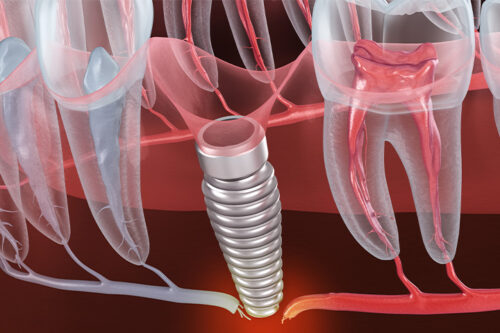
While dental implants are one of the most successful and long-lasting tooth replacement options, complications can occur in some cases. Implant failure can result from a variety of factors, but the good news is that failed implants can often be treated and replaced successfully.
At The Face Dental Group in Boston, we specialize in advanced implant dentistry, including implant failure diagnosis and treatment. If you are experiencing discomfort or complications with a dental implant, our expert team is here to help restore your oral health and function. In this blog, we’ll discuss the causes of failed dental implants, symptoms to watch for, and the treatment options available at our Boston dental office.
What Causes Dental Implant Failure?
While dental implants have a success rate of over 95%, failure can occur due to several reasons, including:
- Poor Osseointegration (Implant Not Fusing to the Bone)
- The implant must integrate with the jawbone in a process called osseointegration. If the bone does not heal properly around the implant, it can become loose and fail.
- Common causes include low bone density, smoking, or underlying health conditions such as osteoporosis or diabetes.
- Peri-Implantitis (Infection Around the Implant)
- This is a serious infection of the gum and bone surrounding the implant, similar to gum disease.
- It can occur due to poor oral hygiene, untreated bacteria, or improper implant placement.
- Without treatment, peri-implantitis can lead to bone loss and implant failure.
- Excessive Bite Force or Implant Overloading
- Grinding or clenching (bruxism) can put excessive pressure on an implant, leading to failure.
- Poorly placed implants that don’t distribute bite forces properly can also fail over time.
- Nerve or Tissue Damage
- If an implant is placed too close to a nerve, it can cause pain, numbness, or tingling.
- Soft tissue irritation or poor healing can also lead to implant complications.
- Medical Conditions and Lifestyle Factors
- Diabetes, autoimmune disorders, and smoking can impair healing and increase the risk of implant failure.
- Certain medications, such as bisphosphonates, may also affect bone healing.
What Are the Symptoms of a Failed Dental Implant?
If you experience any of the following signs, your dental implant may be failing:
- Pain or discomfort around the implant
- Swelling, redness, or pus near the implant site
- Loose or shifting implant
- Gum recession around the implant
- Difficulty chewing or biting
If you notice any of these symptoms, contact The Face Dental Group in Boston immediately for an evaluation. Early detection can improve the chances of saving the implant.
How Can We Treat a Failed Dental Implant?
At The Face Dental Group, we offer advanced solutions to address implant failure and restore your smile. Treatment depends on the cause of failure and may include:
- Deep Cleaning & Antibiotics (For Mild Peri-Implantitis Cases)
- If the implant is infected but still stable, we may perform a deep cleaning around the implant and prescribe antibiotics to eliminate the infection.
- Bone Grafting & Implant Replacement
- If bone loss has occurred, the failed implant may need to be removed. We can then perform a bone graft to rebuild the lost bone and place a new implant once healing is complete.
- Soft Tissue Grafting (For Gum Recession)
- If gum recession around the implant is causing failure, a gum graft can restore healthy tissue and protect the implant.
- Implant Revision & Bite Adjustment
- In cases where implant positioning or excessive bite force is causing failure, we may remove the implant, adjust the bite, and replace it with a properly positioned implant.
- We also offer custom night guards for patients who grind their teeth to prevent future implant damage.
Can a Failed Implant Be Replaced?
Yes! In most cases, failed implants can be successfully replaced after addressing the underlying issue. Whether due to infection, bone loss, or mechanical failure, our Boston implant specialists can create a customized treatment plan to restore your healthy, functional smile.
How to Prevent Dental Implant Failure?
To maximize the lifespan of your dental implants, follow these tips:
- Maintain excellent oral hygiene (brush twice daily and floss around the implant)
- Attend regular dental check-ups and cleanings
- Avoid smoking and tobacco use
- Wear a night guard if you grind your teeth
- Follow all post-surgical care instructions after implant placement
Final Thoughts: Restore Your Smile with Expert Implant Care
A failed dental implant doesn’t mean you have to live without teeth. At The Face Dental Group in Boston, we specialize in implant rescue and revision procedures, ensuring you receive top-tier care for a long-lasting, functional, and beautiful smile.
- Experiencing implant issues? Contact us today for an evaluation!
- Visit our Boston dental office for expert implant failure treatment and restoration!

